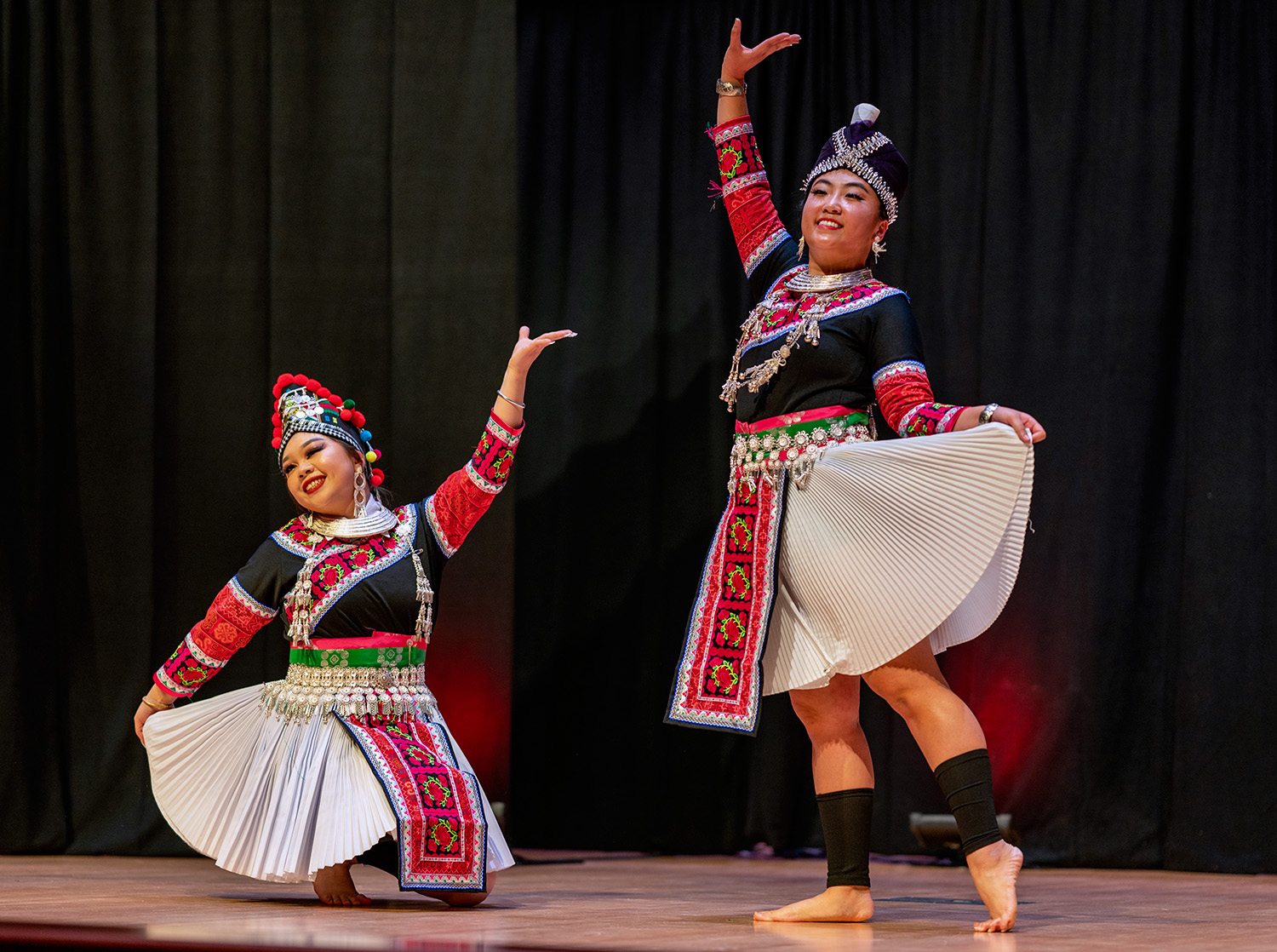Celebrating Our Cultures
At UWRF, we value your experiences and strive to create campus programs that reflect the diverse identities, histories and cultures of our students. Our events are designed to uplift multicultural voices, foster meaningful conversations and celebrate the richness of our community.
Have a cultural celebration you'd like to share? Let us know! Join us in honoring the traditions and stories that make UWRF a vibrant and welcoming place for all.

Heritage Months
February: Black History Month
Black History Month began in 1926 by Carter G. Woodson as Negro History Week. He chose the second week in February because it coincided with Frederick Douglass and Abraham Lincoln's birthdays. The week recognized the accomplishments of Black Americans. In 1976, President Gerald Ford expanded it to a month-long observance.
Today, Black History Month honors the past, celebrates the present, and uplifts the future of Black Americans.
Learn more about Black History Month
March: Women's History Month
Women’s History Month started in 1978 as a week-long celebration in Santa Rosa, CA, timed to line up with International Women’s Day on March 8. Thanks to the efforts of women’s groups and historians, it became a national observance in 1980. Today, it’s a time to recognize and celebrate the impact of women throughout history. In 1987, Congress passed Public Law 100-9 delegating March as Women’s History month.
In 1980, President Jimmy Carter designated March 2-8 as National Women’s History Week stating, “From the first settlers who came to our shores, from the first American Indian families who befriended them, men and women have worked together to build this nation. Too often the women were unsung and sometimes their contributions went unnoticed. But the achievements, leadership, courage, strength, and love of the women who built America was as vital as that of the whose names we know so well."
Learn more about Women’s History Month
April: Sexual Assault Awareness and Prevention Month
National Sexual Assault Awareness Month (SAAM) sheds light on the widespread impact of sexual assault, honors survivors, and promotes awareness and prevention efforts.
Learn about the history of Sexual Assault Awareness Month
Learn more about SAAM
April: Arab American Heritage Month
Arab American Heritage Month is a newer heritage month beginning in 2021 when President Joe Biden wrote a letter to Arab America and the Arab American Foundation honoring the rich “Arab American culture, heritage, and contributions to American society,” (www.arabamerica.com).
Learn more about the Arab American Foundation and Arab American Heritage Month.
May: Asian American and Pacific Islander Heritage Month
Asian American and Pacific Islander (AAPI) Heritage Month began as a week-long celebration in 1978 and became a month-long observance in 1992. It honors the arrival of the first Japanese immigrant and the contributions of 20,000 Chinese laborers who helped build the transcontinental railroad. This month celebrates the rich cultures, achievements, and lasting impact of Asian Americans and Pacific Islanders (Asian Art Museum).
Learn more at the Asian Art Museum and Asian/Pacific American Heritage Month.
May: Jewish American Heritage Month
Established in 2006, from “the concerted effort by American Jewish leaders to introduce resolutions in both the U.S. Senate and the House urging the President to proclaim a month specifically recognizing Jews in America and their contributions to the United States” (www.archives.gov).
Learn more about Jewish American Heritage Month.
June: LGBTQ+ Pride Month
The Stonewall Rebellion on June 28, 1969, played a key role in the creation of Pride Month. It began when police raided the Stonewall Inn, a bar in Greenwich Village, and forcibly removed patrons and employees. The raid sparked six days of protests, marking a turning point in the fight for LGBTQ+ rights. Many historians see this event as the start of the modern LGBTQ+ movement.
Learn more about the Stonewall Rebellion and Pride Month.
September 15-October 15: Latinx Heritage Month
From September 15 to October 15, Latinx Heritage Month celebrates the independence days of Chile, Costa Rica, El Salvador, Guatemala, Honduras, Mexico, and Nicaragua. What began as a week-long observance in 1968 under President Lyndon B. Johnson was expanded to a month-long celebration in 1988 by President Ronald Reagan, honoring the rich cultural contributions of Latinx communities (National Museum of the American Latino).
Learn more about Latinx Heritage Month.
October: LGBTQ+ History Month
LGBTQ+ History Month honors the history, activism, and contributions of the lesbian, gay, bisexual, transgender, gender nonconforming, and queer communities. October was selected as the month to remember these achievements due to several significant dates, including National Coming Out Day (October 11), Spirit Day to support LGBTQ+ youth (October 20), and Asexual Awareness Week during the last week of October, among others.
Learn more about LGBTQ+ History Month.
November: Native American History Month
November is recognized as National Native American Heritage Month, a time to honor the contributions, cultures, and histories of Indigenous peoples in the United States. The month-long celebration began in 1990 when President George W. Bush signed a joint resolution designating November as Native American Heritage Month. Throughout the month, various events, activities, and educational programs take place to raise awareness about the diverse cultures, traditions, and history of Native American communities. It’s also a time to reflect on the challenges faced by Indigenous peoples and recognize their ongoing contributions to society. (www.archives.gov).
Learn more about Native American Heritage Month and Native American History.
Identity Recognition Days
January 20: Martin Luther King Jr. Day
January and February: Lunar New Year and Lantern Festival
February 4: Rosa Parks Day (as part of Black History Month)
March 31: International Day of Transgender Visibility
April 24: Holocaust Remembrance Day (Yom HaShoah)
June 19: Juneteenth
October 11: National Coming Out Day
October 14: Indigenous Peoples’ Day
November 8: National First-Generation Day
November 20: Transgender Day of Remembrance
December 3: International Day of Persons with Disabilities
Related Links:
Student Inclusion and Belonging
Office: Monday-Friday, 8 a.m.-4:30 p.m.
Lounge: Monday-Thursday, 7:30 a.m.-7:30 p.m.; Friday 7:30 a.m.-5 p.m; Closed on weekends

